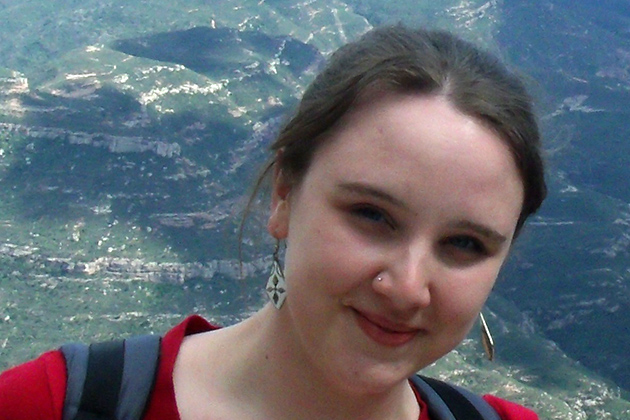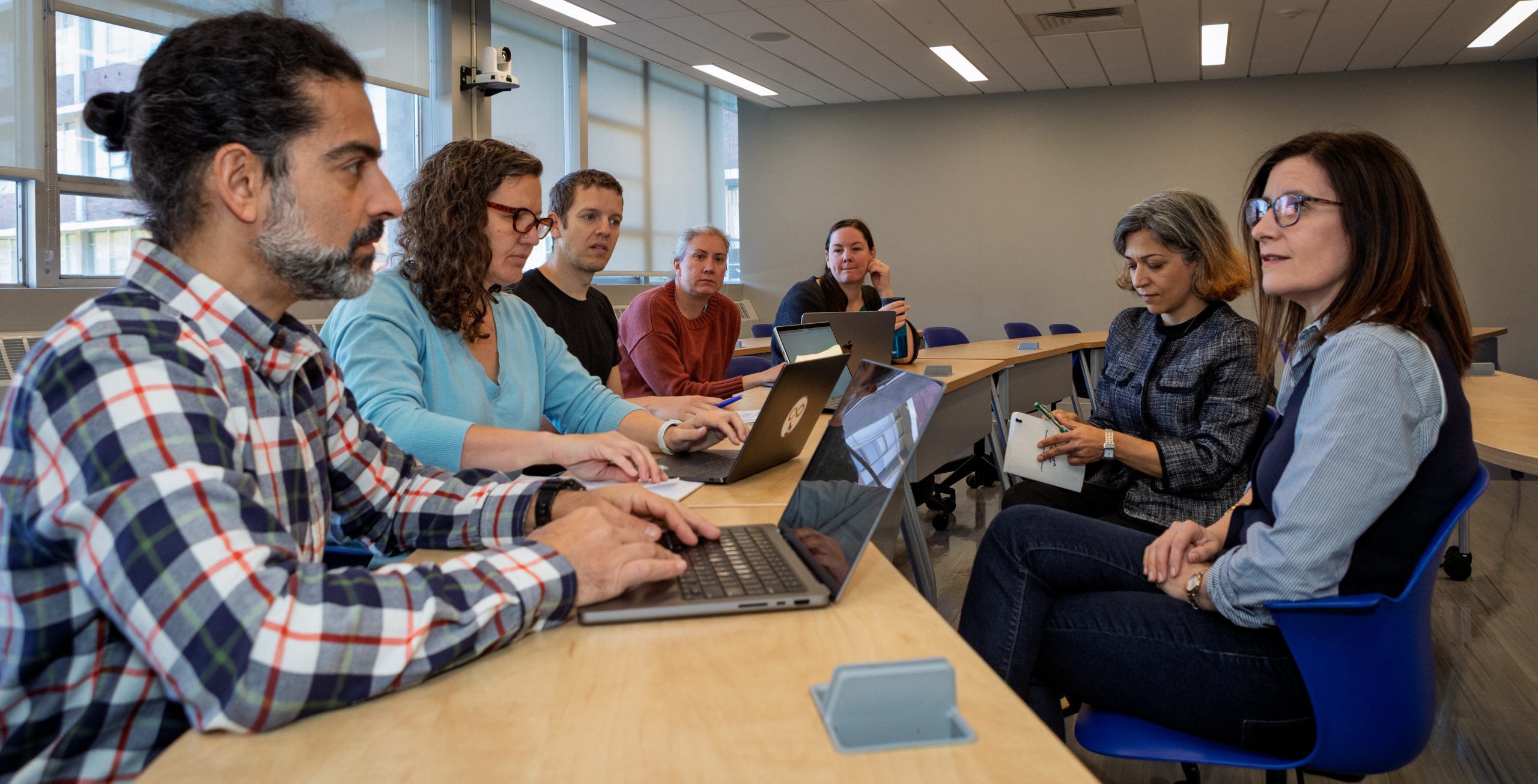This article is part of a series featuring some of this year’s outstanding graduating students, nominated by their academic school or college or another University program in which they participated. Check for additional profiles of students in the Class of 2013 on UConn Today from now through Commencement.

History major Mairead Hynes ’13 (CLAS) will be teaching English in Japan next year, and contemplating where she’d like to go to graduate school. She will also be doing some reading on the side, probably in the areas of Asian and Latin American history. And after that? Well, the sky’s the limit for this budding historian, she just needs to decide where she will focus her energy.
Hynes’ road to a bachelor’s degree didn’t start out in typical fashion. She began college at age 14 in the Program for the Exceptionally Gifted at Mary Baldwin College in Virginia. This residential program offers an opportunity for bright and accomplished young women between the ages of 13 and 15 to begin college while bypassing all or some of their high school courses.
A straight ‘A’ student while majoring in international relations, Hynes hit a mild bump in the road when she decided to add a biology major and took her first course in that discipline. “I enrolled in an upper level immunology class and for the first time I didn’t get an ‘A’. I was young and a less than perfect grade really shook my confidence,” she says, smiling at the recollection, “so I thought that I might not be cut out for college after all.”
When it came time for her to continue her quest for a bachelor’s degree, Hynes decided to transfer to UConn’s Stamford campus. That way, she could live at home in Cos Cob, Conn., and commute to school. “I’d already experienced being a residential student, and by living at home and working, I could pay my own tuition,” she says. “Once I got to Stamford, I fell in love with the history classes and the professors, and I knew that I had found my niche.”
Her academic advisor, associate professor of history Joel Blatt, says that she is an exceptional student. “Mairead’s professors have all commented on her great academic strengths,” he says, “and she has done excellent work in my class – on exams, written assignments, and in class discussions.”
Blatt is also Hynes’ Honors thesis advisor on the topic of the appeasement policy of Great Britain towards Hitler and Nazi Germany from the time the Munich Treaty was signed in late September 1938 until the outbreak of World War II in September 1939. She has focused on The Times of London and the role of its editor, Geoffrey Dawson, during the years leading up to the war.
”One of the great things about Mairead,” Blatt says, “is her initiative, and when she found out that Dawson’s papers were in the archives of Oxford University in the U.K., she applied for financial aid through the Office of Undergraduate Research, the Humanities Institute in Storrs, and the dean’s office here [in Stamford], and that paid for a research trip to Oxford during this past spring break.”
Hynes says the trip was invaluable and she became immersed in the collection of Dawson memorabilia. “Standing in the middle of the archives, I was opening boxes of his correspondence and out came multiple letters from Neville Chamberlain [Prime Minister of Great Britain from 1937 to 1940]. There was even a letter from Chamberlain’s wife, Anne, thanking Dawson for supporting her husband’s policy of appeasement. And there were also letters from Winston Churchill [British Prime Minister from 1940 to 1945 and 1951 to 1955]. I have to admit that I was impressed enough at seeing Churchill’s signature that I allowed myself to touch it – usually something you try not to do when looking at old correspondence.”
She comments, “Dawson’s relationship with The Times was a microcosm of Chamberlain’s relationship with his country. In retrospect, we can see that they both took the wrong path, even though their intentions were good ones.”
After graduating in May, Hynes plans to teach in Japan for a year. She first began studying Japanese in 2006 while an undergraduate in Virginia, and she has friends teaching in Japan now. So she applied for a position in that country through the Japan Exchange and Teaching Program sponsored by the Japanese government. She is currently waiting for her assignment, and expects to be placed in a rural school system.
Hynes says that while she’s looking forward to teaching in a foreign country, she fears that she will miss ready access to familiar academic journals when she is abroad. She hopes one day to become a history professor, but hasn’t yet decided what she will specialize in because she tends to fall in love with whatever she is studying at the moment.
With a bright future and many options in front of her she says, “I feel a little bit as if I’m standing on a cliff – but only in a good way.”



